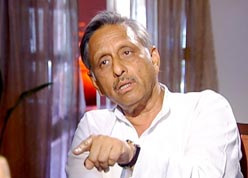Let us wind back in time to get some perspective on this. In the 90’s yahoo introduced the e-mail to the internet and allowed users with valid email identity’s messages. The only software required to use this service was the browser. Obviously the computer should be connected to the internet. This is the most rudimentary type of “Cloud computing”. The actual email software, the storage of your received and sent messages are all hosted in servers that are probably on the other side of the globe. Contrast the Yahoo email service to the one you use at your workplace either with Microsoft Outlook or Lotus Notes. The email software is installed in your computer; your messages are also stored in your computer or your company’s server.
Now, if cloud computing is such an old concept why is it getting a lot of attention and mention in the tech websites? The early Cloud computing services had a few limitations. They were not secure, they were not fast, they were not able to carry large amounts of data, and they were not very efficient. For these reasons the cloud computing market was restricted to the private individual internet user. However, in the last decade we have seen Telecommunication technology, particularly the internet has developed in leaps and bounds. Just to illustrate the change compare my anecdotal evidence below.
There was a time, when I started as a programmer; our office had one computer (Pentium 486, 12” monochrome monitor, windows 3.1, Netscape Communicator, 4MB RAM) that had internet access. The company boasted that it had a 64 Kbps ISDN service for which it was paying a premium. Those were the days of dial-up internet connections. We were given an hour’s time on the computer per week and we were allowed to browse anything we wanted. The first website I went to was www.whitehouse.com, to my utter surprise it was a porn site, the official Whitehouse website was www.whitehouse.org. It was painfully slow, I consumed by 60 minute quota just reading 5 pages on the Whitehouse website (.org one that is), but it did not bother me at that time, because you had no idea how fast internet could be.
Today, I can download a feature length movie in 20 minutes flat. Infact, the speed is so good, that I can watch the movies online (video streaming) without having to download it. Another good example of cloud computing, no need for a media player. All you need is a browser with a compatible video plug-in. The only major difference between a video streaming service (e.g. www.youtube.com) and the yahoo email service is the type of content i.e. Video vs. Text. Video obviously requires a lot of storage pace and needs a fast internet to view the movie without buffer interruption. Again, the target market is private individual user.
Google, created documents that can be created, edited and shared on the internet. I have been a recent user of this service (Software as a Service – SaaS). The only reason I use it is because of the sharing ability of the documents. I would not put any sensitive data on it. Google is enhancing the features of the service and I hear they are taking it to the enterprise level. I can guarantee that it will be an utter failure unless they sort out the usability and the security of the service. I have recently moved on to MS Office 2007 and am highly impressed with the usability and features available. Though not a very big fan of MS Technology, I rate MS Excel and MS PowerPoint as two of their best office products. If Google wants me to extensively use Google Docs, they have to come close to the office suite and that will be a huge challenge.
With ubiquitous high speed broadband, there has been a rush to offer more services over the internet. Google docs, mentioned above is one such example. On a serious note Amazon has embraced Cloud Computing and is offering a range of services including Virtual Private Clouds, Virtual Storage and many others. Organisations are seriously looking at using Cloud Computing or Software as a Service for their IT needs. The advantages of this would include Reduced software costs, as you pay for the service you use thus reducing Capital Expenditure
- Reduced IT infrastructure costs, as you don’t have to maintain energy consuming hardware
- Reduce IT Workforce, as you do not own the software or the hardware and maintenance is part of the service
- Increased desktop efficiency, with fewer programs vying for the computer resources, the desktop is more efficient
- OS Compatibility, no longer do organisations have to think about a MS or Mac PC strategy.
However, for small and medium enterprises (SMEs) this is an excellent strategy to drive efficiencies and reduce costs. Looks at the options available for SMEs; payroll software, email, document management and data storage.
Welcome the Cloud.



